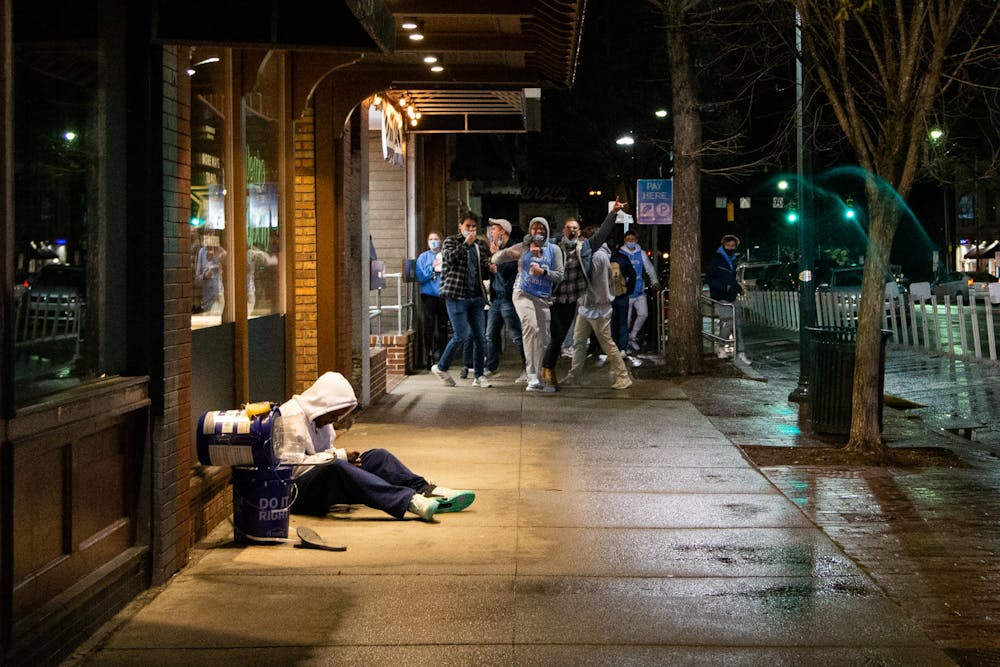COVID-19 has fundamentally changed the way we live our lives, and people are spending more time at home than ever before.
At the same time, nearly 554,000 Americans are homeless amidst a deadly public health crisis, with over 9,000 of them living in North Carolina. As communities band together and support each other through these tough times, a key vulnerable group is forgotten about.
Chapel Hill has its own homeless population who often go unmentioned in our conversations about COVID-19 safety and precautions. On a given night, 124 people in Orange County are homeless.
But homeless people are largely excluded from our conversations about COVID-19, with fatal consequences. The average homeless person is over 60 years old, and is more likely to have preexisting conditions that put someone at a high risk for severe infection. 49 percent of people experiencing homelessness in Orange County identify as Black or African American — a demographic that is also more likely to be affected by COVID-19.
Those without homes also tend to lack reliable health care, access to testing facilities and can be exposed to COVID-19 in high density homeless shelters. It is likely that these individuals are unable to afford or access personal protective equipment, such as masks, and instead rely on shared public facilities, which can also increase COVID-19 exposure.
Homeless populations might lack devices such as cell phones, which studies use to collect data on COVID-19 spread and exposure. Not having a permanent address can also make it difficult to get tested, receive results and even get vaccinated when one becomes available.
It’s not just homeless individuals – incarcerated people are two to three times more likely to die of coronavirus, studies find. Meanwhile, North Carolina prisons are under investigation for failing to accurately report COVID-19 deaths. While the facilities claim to not publish deceased prisoner’s names for privacy reasons, this takes away accountability from prison officials and has allowed personnel to underreport deaths.
This issue is not unique to North Carolina, but this state investigation exposes the flaws of American prisons during the pandemic. Prisoners live in close quarters, and safe social distancing is often impractical and impossible. It is estimated that one out of every five U.S. prisoners has contracted COVID-19 as a result.
These groups are not only more vulnerable to COVID-19, but also forgotten about. Studies about the virus and case reports tend to lack data on homeless and incarcerated populations.




